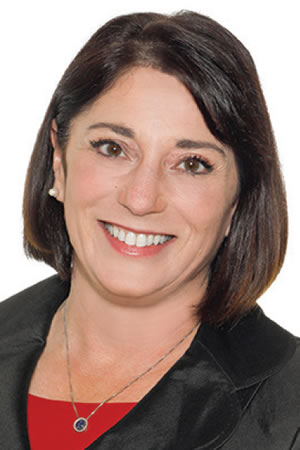Ybor Square, 1999
SHARE:

Harris Mullen, Founder/Publisher Florida Trend

Vickie Chachere
Editor's Page
Past is Prologue
I never had the privilege of meeting FLORIDA TREND’S founder, Harris Mullen. He’d sold the magazine nine years before my first job at the Tampa Tribune brought me to Florida, but he was well known as an entrepreneurial legend. It also turns out he was a man well ahead of his time.
Florida had started its steep upward trajectory when Mullen launched FLORIDA TREND, and he saw a statewide business community ready to take off like one of the rockets out of Cape Canaveral. Years later, he debuted a quarterly publication to cover business in the South, correctly pegging the region as the nation’s premiere long-term growth market. The publication didn’t last, but Mullen wasn’t wrong: The Southeast is dominating U.S. population growth now and will do so for decades to come.
There was another aspect of Mullen’s vision I didn’t appreciate until the FLORIDA TREND team peeked inside boxes of papers he’d left to the University of South Florida’s special collections division. There inside the files of old contracts, drafts of speeches he gave to Rotary Clubs and business societies (complete with typed note cards of corny opening jokes that surely elicited guffaws in a room full of businessmen) was a paper trail I didn’t expect to find.
Mullen had another love beside this magazine — Tampa’s Ybor City. And he’s one of the reasons the historic quarter still exists.
If you know Tampa, you know Ybor City is the heart of its history. At its height in the early 1900s, Ybor was the world’s cigar capital with an estimated 10,000 cigar rollers working in 200 factories and producing up to a half-billion handrolled cigars a year.
Ybor City was a magnet for immigrants from Cuba, Spain, Italy and Germany. They brought the languages, customs and food traditions that gave Tampa its unique flavor and vibe. Those hardworking families grew to have a presence in Tampa’s wider civic and business communities — forging an unflinching resilience still reflected in the city’s character. Mullen had been a police reporter at the Tampa Tribune during the start of his career — a beat I worked as well, years later — and I am sure he came to know some of its more notorious characters.
Over the decades, Ybor City was dealt a series of body blows: Cigarettes became more popular than cigars; machines began to replace people; and then the Cuban embargo shut most of the factories when they were cut off from their supply of tobacco leaves. Urban renewal in the 1950s to the 1970s decimated the community; scores of factories were torn down.
In a time when few were interested in Ybor’s future, Mullen planted a flag there by buying and restoring the V.M. Ybor Cigar Factory and refashioning it as Ybor Square, a shopping and dining destination. The massive building had been Tampa’s first cigar factory and the hub of Cuban revolutionary activity in the 1890s. It was there that Cuban freedom fighter José Martí drummed up support for Cuban independence from Spain while inside the factory’s walls, workers rolled cigar leaves as lectors read aloud from Cuban and American newspapers and classics like Don Quixote, their voices echoing off the high ceilings and brick walls.
The factory had sat neglected for years until Mullen bought it in 1972 for $100,000. In 1975, TREND’S offices moved in, and Mullen became a voice for Ybor City, dreaming of days when its sidewalks would hum with life again and Tampa’s iconic trolleys would rattle through the streets.
Like the immigrant families who made new lives here, Tampa native Mullen believed deeply in the American Dream. He and the others who fought for Ybor City knew the threads of a city’s history are as important in building its future as the steel and glass of shiny new towers. Historic neighborhoods are where cities retain their hard-earned wisdom, and in Ybor, it’s baked into the red brick walls and forged into the ironwork balconies. It can be difficult to make a business case for the expense and trouble of saving old buildings, but rescuing the factory amounted to Mullen putting a marker down on the value of what had been before and on what could be again.
It would take decades for the rest of the world to see it, but eventually they have.
Now in private hands and not publicly accessible, Ybor Square still looms like a fortress across the street from the tiny José Martí Park, which for six decades was the only Cuban-owned land in the U.S. On a quiet afternoon, Ybor’s famed roosters amble past new condos and offices that foretell the quarter’s future as a live-work-play neighborhood for well-heeled urban dwellers. A streetcar scoots by, its bell ringing with new urgency. The city wants to extend the streetcar line to help solve Tampa’s transit issues — just as Harris Mullen thought it should.
Find me on Twitter, @VickieCFLTrend, and LinkedIn.





















 Business Beat - Week of May 3rd
Business Beat - Week of May 3rd


